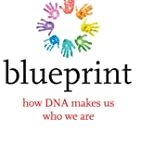Unnecessary Psychology
My good friend, Duane Stroman, published a book titled, The Quick Knife: Unnecessary Surgery. It was based on Duane’s research where he matched counties based on socioeconomic status and other demographics and found big differences in the frequencies of certain types of surgeries. His main finding was that some surgeries were based more on surgeon preferences than medical needs. I recall a surgeon joking with Duane that he was planning to respond with a book titled Unnecessary Sociology.
Well, Unnecessary Psychology could be the subtitle of Robert Plomin’s Blueprint. Plomin has studied individual differences first in orphans and then twins for more than four decades. His conclusions shake the foundations of certain core principles of psychology. What is especially attention grabbing about Plomin’s work is that he is a psychologist himself and his conclusions are based on solid research and reams of data.
He answers the iconic nature v, nurture question with findings that nature, as in genes, account for fifty-percent of the variance in determining who we are both physically and psychologically. By contrast, nurture, the environment within which we function, may explain just five percent of who we are.
Here are just two of the implications of the research he reports.
Parents Matter But They Don’t Make a Difference (p. 82)
So much for Tiger Moms. While he acknowledges that parents’ matter, it is the genes children inherit that account for most of what children become. To support this assertion, he cites research showing that twins raised in adapted families wind up being more like their biological parents than the ones who raised them.
“In essence, the most important thing that parents give to their children is their genes.”
To put the icing on the cake, he writes that all magazines and books advocating good practices for parents are “peddling snake oil.” He challenges that industry to provide evidence beyond anecdotes to support their claims.
As if this were not enough to make you stop and think about conventional wisdom on being a parent, he writes this about school:
Schools Matter But They Don’t Make a Difference (p. 86)
The examples he cites are from the UK where Plomin, a native American, now lives and works. But they are also abundant in the US where many parents pay for expensive private schools and SAT coaching for their children to be admitted to selective colleges and universities.
As someone who studied psychology as an undergraduate and educational psychology in graduate school, this quote hit me hard.
“Genetics is by far the major source of individual differences in school achievement, even though genetics is rarely mentioned in relation to education.”
I would like to be able to refute that quote, but I can’t.
In summary, a blog post does not do justice to Plomin’s important contributions. A better setting would be for it to serve as the foundation for a seminar for all students of psychology. I would be first in line to register. Until the seminar, I would recommend the book as an eye-opener.


Good info, Arnie. Thought provoking for sure.
An eye opener, indeed. Hope you are well – Arnie.